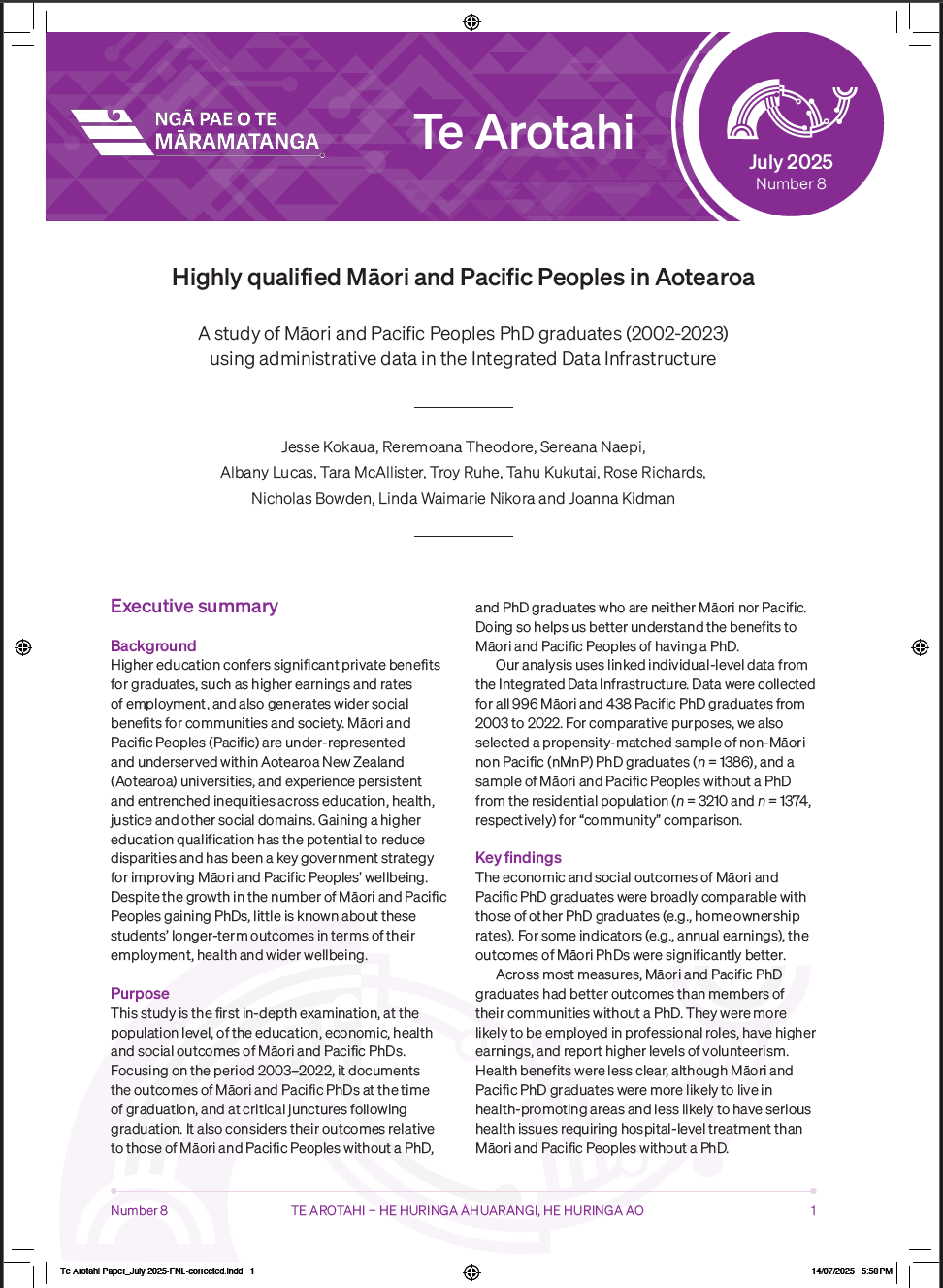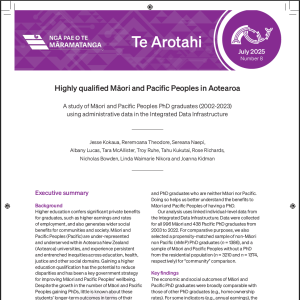
Higher education confers significant private benefits for graduates, such as higher earnings and rates of employment, and also generates wider social benefits for communities and society. Māori and Pacific Peoples (Pacific) are under- represented and underserved within Aotearoa New Zealand (Aotearoa) universities, and experience persistent and entrenched inequities across education, health, justice and other social domains.
Gaining a higher education qualification has the potential to reduce disparities and has been a key government strategy for improving Māori and Pacific Peoples’ wellbeing. Despite the growth in the number of Māori and Pacific Peoples gaining PhDs, little is known about these students’ longer- term outcomes in terms of their employment, health and wider wellbeing.
This study is the first in-depth examination, at the population level, of the education, economic, health and social outcomes of Māori and Pacific PhDs. Focusing on the period 2003–2022, it documents the outcomes of Māori and Pacific PhDs at the time of graduation, and at critical junctures following graduation. It also considers their outcomes relative to those of Māori and Pacific Peoples without a PhD, and PhD graduates who are neither Māori nor Pacific.
Doing so helps us better understand the benefits to Māori and Pacific Peoples of having a PhD. Our analysis uses linked individual- level data from the Integrated Data Infrastructure. Data were collected for all 996 Māori and 438 Pacific PhD graduates from 2003 to 2022. For comparative purposes, we also selected a propensity- matched sample of non- Māori non Pacific (nMnP) PhD graduates (n = 1386), and a sample of Māori and Pacific Peoples without a PhD from the residential population (n = 3210 and n = 1374, respectively) for “community” comparison.
